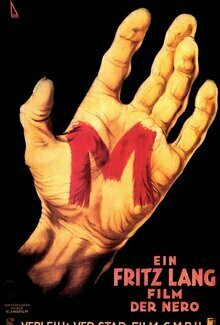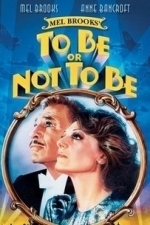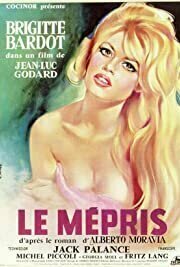Search
Search results
Gene Simmons recommended M (Movie) (1931) in Movies (curated)
Daniel Bruhl recommended To Be or Not to Be (1983) in Movies (curated)
David Hudson recommended Contempt (1963) in Movies (curated)
Martin Scorsese recommended Contempt (1963) in Movies (curated)
Kirk Bage (1775 KP) rated M (Movie) (1931) in Movies
Jan 28, 2021
The maestro of dark shadows, Fritz Lang already had 14 feature films under his belt by 1931, including the much loved and much borrowed from Metropolis in 1927. It is said that he was such a slave driver with cast and crew alike that he had very few friends and was detested as a man. His work spoke for itself, however, and was always miles ahead of anything happening at the same time in Hollywood. Take the dark, sinister and serious M as an example. It tackles the subject of child abduction and murder, homelessness, crime in general and the punishment of a mob – subjects American cinema would never have touched in 1931, let alone done with such an exquisite non- melodramatic feel.
Peter Lorre as the killer compelled by his own weakness and madness gives an unfeasably nuanced performance for the era also. He is mesmerically creepy and unforgettable. Images and motifs (such as the whistle that indicates the murderer is lurking) abound, creating a landscape of pure mood and disease. As a morality tale it touches on issues of vigilantism and true justice that still has some relevance today. It also works as an entertaining thriller, and there wasn’t a minute I felt bored or distracted. The only jarring element are the scenes where Lang cuts the sound entirely to create tension and focus – they feel like technical mistakes, not deliberate choices. Otherwise, I could not have been more impressed and pleasantly surprised by this Euro classic for all time. If I were making a list of the best films ever made that disregarded the limitations of the age, then M would definitely make the cut.
Peter Lorre as the killer compelled by his own weakness and madness gives an unfeasably nuanced performance for the era also. He is mesmerically creepy and unforgettable. Images and motifs (such as the whistle that indicates the murderer is lurking) abound, creating a landscape of pure mood and disease. As a morality tale it touches on issues of vigilantism and true justice that still has some relevance today. It also works as an entertaining thriller, and there wasn’t a minute I felt bored or distracted. The only jarring element are the scenes where Lang cuts the sound entirely to create tension and focus – they feel like technical mistakes, not deliberate choices. Otherwise, I could not have been more impressed and pleasantly surprised by this Euro classic for all time. If I were making a list of the best films ever made that disregarded the limitations of the age, then M would definitely make the cut.


